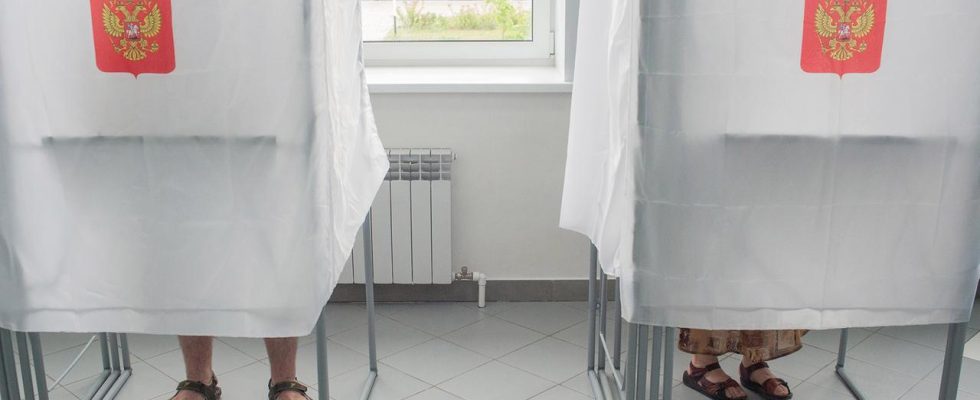Kremlin chief Putin wants to be confirmed as president on March 17th. To make this look convincing, high voter turnout should be ensured – according to election observers, by putting pressure on voters.
The independent Russian election observer organization Golos fears increasing pressure on voters to take part in the presidential election on March 17th. The organization wrote on its Telegram channel that voter turnout should be increased primarily by people who are dependent on the state voting. This affects employees of authorities and other state institutions, the workforce of state-owned companies or large companies close to the Kremlin.
Cell phone control
As evidence, Golos cited a system for electronic control of voting that was allegedly distributed by the Kremlin party “United Russia” in its branches. Voters received an SMS on their cell phone with a link to confirm their participation in the election. However, this link only works if the phone’s location tracking is switched on and the device is used directly in the polling station. The election observers classified this type of data collection as a violation of electoral secrecy.
Don’t vote as a form of protest
Kremlin chief Vladimir Putin wants to be confirmed as president for another six years on March 17th. There are no serious opposing candidates. The Russian authorities are doing everything they can to present the election as a convincing referendum. Non-participation is one of the few opportunities for voters to evade the system and express dissatisfaction.
According to reports from the exiled Russian internet portal “Meduza”, members of “United Russia” are being urged to get at least ten other people to vote. Employees of state-owned companies should bring three people with them.
Kremlin opponents have called for people to go to the polls at exactly 12 noon on election day as a sign of protest. The queues in front of the polling stations will show how high the level of dissatisfaction actually is. This action is also supported by Yulia Navalnaya, the widow of dissident Alexei Navalny, who died in Russian custody in February. The Russian judiciary has long been putting pressure on the Golos organization to hinder the work of election observers.

